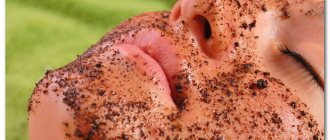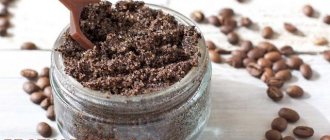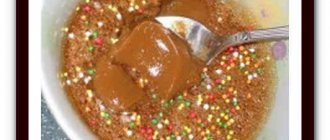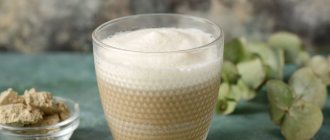In fact, we rarely think about whether our morning coffee can make our skin healthy? Coffee naturally contains nearly a dozen antioxidants that contribute to human health. In addition, its biggest benefit is chlorogenic acids (CHAs). But it also contains many other compounds that may act as anti-cancer, antioxidant and anti-aging agents. Only by delving into the chemical composition of coffee beans can you understand does coffee affect your skin color and whether it adds health to her.
The effect of coffee on skin color
To understand this, you need to dive deeper into the chemical composition of the grains.
Polyphenols are phytochemicals. For example, flavonoids, lignans, phenolic acids, found throughout the plant kingdom: in vegetables, fruits, grains, tea and even wine. They can alter your gut flora (note the link between gut and skin health) and protect against oxidative stress, DNA damage, and even inflammation caused by UV radiation.
Antioxidants are compounds that protect cells from free radical damage. There is a very large amount of research examining how various antioxidants can help prevent a number of human diseases. Including cancer, atherosclerosis, stroke, rheumatoid arthritis, neurodegeneration and diabetes.
Antioxidants fight premature aging. Thus, they absorb free radicals that damage lipids, which make the skin smooth and wrinkle-free. If you've ever suffered from acne, you know how dangerous inflammation on your face can be.
You may be interested in: Why should you drink water after coffee?
General recommendations
- Apply masks only to well-cleansed skin, avoiding the area around the eyes and lips. It is preferable to use them in the evening, when the skin is capable of maximum absorption of all valuable substances.
- The duration of the masks is no more than half an hour.
- Wash off the compositions from the face with warm water (boiled or filtered) and gently wipe with a disposable paper towel.
- Use only natural ground coffee beans and avoid instant substitutes!
- Before applying each new mask to your face, be sure to test for an allergic reaction.
- You should not make such masks if you have cuts, wounds, herpes, inflammatory, infectious skin diseases, rosacea and individual intolerance to the composition of coffee.
- The course of using any mask is 10 - 15 sessions, performed 2 - 3 times a week.
- While the masks are in effect, it is forbidden to talk, so as not to disturb facial expressions and not get new wrinkles on the skin.
Benefits of coffee for skin
Of course, not all types of grains contain the same amount of polyphenols. Their quantity will directly depend on the coffee beans. And also on where they are grown, how they are collected and how they are fried. The only way to know is to choose a bean variety that has been tested to contain one of the most powerful polyphenols, chlorogenic acid.
Here are five components found in coffee that promote healthy skin, both when taken internally and when applied externally.
Caffeine
Caffeine is the most famous of the components. It's a legal psychoactive compound that wakes us up in the morning and can improve mental acuity. It has even been shown to help prevent neurodegenerative diseases such as Alzheimer's disease. Caffeine can also stop DNA cell damage in its tracks by inhibiting the ATM and ATR enzymes. These compounds promote the growth of damaged cells, which can lead to the growth of cancerous tumors.
Caffeic and ferulic acids
We are reminded time and time again to wear sunscreen to protect ourselves from the sun's UVA and UVB rays. Damage to the skin caused by UV radiation leads to uneven skin tone, sunburn and premature aging.
Caffeic acid is the so-called hydrocyanic acid of plants. Has powerful antioxidant activity. The study was conducted with a specific purpose. Can caffeic acid, along with ferulic acid, help prevent damage caused by ultraviolet radiation from the sun.
Flavonoids
You may already be thinking how strange it is to apply coffee powder directly to your skin. This may seem strange at first. In fact, the popularity of this process is inevitably growing. But, more often in the circles of women who prefer natural beauty.
This trend is also gaining popularity among large cosmetic companies. Mainly those that actively promote and exploit the benefits of compounds such as flavonoids.
Eugenol
The natural organic compound with the formula C6H4 (OH) (OCH3) found in coffee beans is called eugenol. This amazingly versatile molecule, found in other foods such as cloves, bay leaves, turmeric, cinnamon, basil, thyme, nutmeg, has found its way into the pharmaceutical, agricultural, perfume, flavor and cosmetics industries.
The pharmacological activity of eugenol has been well studied. It has antimicrobial, anti-inflammatory, analgesic, antioxidant and even antitumor activity. Today there is a lot of information about cancer, as well as about its dangers.
Because skin cancer is generally curable, it is sometimes overlooked as a real threat. But cancer can often be fatal. Melanoma is the most dangerous type of skin cancer because it develops quickly. It can only be cured if it is detected at an early stage and the person has received appropriate treatment; there are no other options. Because many people do not get screened on time, melanoma sadly accounts for more than 65,000 deaths worldwide each year. Unlike flavonoids, eugenol's healing effects usually occur when you ingest it rather than apply it externally.
Gamma tocopherol
Gamma tocopherol, found in our diets, accounts for about 70% E intake in the diet. It is the most important antioxidant vitamin that promotes healthy skin. This antioxidant effect also promotes healthy lipids in the skin.
Lipids make the skin elastic, smooth and prevent premature aging and the appearance of wrinkles. Gamma tocopherol helps fight nitric oxide free radicals. Prevents premature aging associated with oxidative stress.
Harmful properties of coffee for skin
With the exception of a very few people, the benefits of coffee far outweigh its risks. It has antioxidant, anti-cancer and anti-inflammatory functions that fight disease both internally and externally. However, if consumed more than four cups per day, the drink may be harmful to your health.
Material on the topic: The benefits and harms of coffee for a child
The effect of caffeine on beauty depending on skin type
More than 10 years ago, cosmetic companies began using caffeine as an ingredient in skin care products for its magical tightening effect. It turns out that it is ideal for any type. By regularly using these products, you can feel confident in your attractive appearance. You can even go out without makeup!
In this article, we looked at five compounds that coffee contains that can have a positive effect on your skin.
For oily skin
Can coffee make acne worse? You may have learned to cope when there are particular stresses at work and sometimes at home. What is associated with this condition is that the release of stress hormones, such as cortisol, causes your body to produce insulin. This can cause the skin to produce excess oil and cause acne and increased levels of inflammation in the body.
Therefore, to summarize, caffeine does not cause acne. However, excessive consumption is associated with stress, which in turn causes acne.
For combination skin
Caffeine, which is abundant in beans, slightly dilates blood vessels in reasonable quantities, which improves blood circulation. It also has a lymphatic drainage effect, making the face smooth. A good effect is also the hiding of small blood vessels, the upper layer of the epidermis is thickened.
At the same time, the color of the skin is transformed, as the high lipid content helps restore water balance. Regular use of masks based on coffee grounds relieves swelling and fatigue of the face, improves skin color. When used correctly, products containing coffee can provide beneficial nutrition for normal and combination skin.
For dry skin
Among the beneficial effects on dry skin, it can be noted that the drink:
- increases firmness and elasticity;
- softens;
- smoothes;
- increases blood circulation in blood vessels;
- improves cell metabolism.
Avoid abuse. 3-4 cups during the day is enough! Otherwise, the body will be severely dehydrated.
Coffee: understanding the benefits by reading research
Coffee is one of the most common caffeinated beverages in the world. The purpose of the topic: to understand whether coffee is good or bad and find the most useful methods of preparation. When creating the post, more than 100 scientific publications , links to them are at the end of the message.
Before we continue, please vote in the poll above. What did you think (it seemed, it didn’t necessarily mean that you already had a well-founded opinion): is coffee more likely to be beneficial or more likely to be harmful?
Benefits of coffee
Not everyone knows how to use multi-letter words, so I’ll say right away that coffee is rather healthy, but there are nuances.
Next we will consider:
- coffee and overall mortality
- effect on the cardiovascular system
- cancer
- metabolic syndrome, type 2 diabetes, obesity, liver disease, cognitive disorders, depression, urolithiasis
Coffee and all-cause mortality
The most important point. If the overall mortality and overall life expectancy for coffee drinkers is higher (all other things being equal), then it is useful, and everything else is just detail.
Meta-analyses on the effect of coffee on general and specific mortality show that regular moderate consumption of coffee reduces the relative risk of overall mortality , reduces mortality from cardiovascular diseases, and has a neutral or positive effect (especially for non-smokers) on mortality from cancer.
Below are some graphs from meta-analyses:
The first two show the dependence of mortality on various causes and the amount of coffee consumed per day.
Effect on the cardiovascular system
Previously, it was mistakenly believed that coffee had a negative effect on the cardiovascular system. The first studies did not take into account the correlation between coffee consumption and bad habits, especially smoking. Later, correlations were found: among people who drink coffee, there are also more people who smoke, drink alcohol, have insufficient physical activity, have a lower level of income, and eat fewer vegetables and fruits, but more red meat. In modern studies, these dependencies were taken into account and comparisons were made for each group separately.
In the short term, coffee can actually lead to increased blood pressure and resting heart rate, both of which are risk factors for cardiovascular disease (CVD). But in the long term, the relative risks of mortality from CVD are lower. Graphs from an article on long-term coffee consumption and heart disease from the journal Circulation (American Heart Association):
At A, B and C are the risks of CVD, coronary heart disease and stroke, respectively, depending on the amount of coffee consumed.
In addition, there have been studies that have noted some positive correlations (less common) for coffee drinkers with vein thrombosis and arterial calcification.
One of the negative effects that persisted in the long term is an increase in the level of LDL (“bad cholesterol”) in the blood, but this can be prevented by proper brewing of coffee (I tempt you to read to the end where this will be).
Coffee and cancer
The effect of regular coffee consumption on the development of various types of cancer has turned out to be the most controversial. There are tons of studies, but the results vary greatly.
Because we still get all the effects at once, it makes sense to talk only about the overall effect on mortality from all types of cancer. And it looks very much like it's neutral. Not in the sense that coffee has no effect on cancer, but in the fact that it reduces the likelihood of some types, increases others, but most of all the types for which researchers cannot come to clear patterns. This also follows from the methodology: most statistics are collected simply from the results of filling out questionnaires, and completely different things can lie behind a person’s answer about the level of coffee consumption. What type of coffee is consumed, how it is brewed, what is added to it, what it is usually combined with and a bunch of other related things have a decisive influence on the result.
Recently, a large review article was published from the authoritative journal Annual Review of Nutrition, which, among other things, has a good visual illustration of the relative risks of different types of cancer for groups of minimum-maximum coffee consumption:
There is strong variability in results across different types of cancer. Cancer risk chart from the same article:
Overall cancer mortality is slightly lower for 1-4 cups/day and increases with increasing consumption. Given differences in consumption patterns and incompletely understood mechanisms, it is impossible to speak of a significant correlation between cancer mortality and coffee consumption. Other large observational studies report a lack of statistically significant correlations.
So far, we can only talk about the overall neutral effect of coffee consumption on cancer mortality. Further research needs to be monitored.
Other positive effects
Statistically significant correlations for coffee drinkers were found for:
- Alzheimer's disease;
- metabolic syndrome and type 2 diabetes;
- chronic liver diseases;
- Parkinson's disease;
- urolithiasis disease.
For some of the diseases listed, the relationship between risk reduction and the amount of coffee consumed is direct; for others, the best results are with moderate consumption.
It is very important what kind of coffee you drink and with what. For example, regarding metabolic syndrome and type 2 diabetes, there are no contradictions between studies and the positive effect of coffee is not questioned, however, in a study from South Korea, the results were the opposite: increased coffee consumption, on the contrary, correlated with an increased risk of type 2 diabetes. The researchers themselves suggested that the problem is most likely in the culture of coffee consumption in Korea: the majority drinks instant coffee of the 3in1 type with added sugar and cream, and the problem may be precisely in the additives.
If we summarize the positive effects that correlate with coffee consumption, then it is already clear that coffee is most likely beneficial because on the main points (general mortality, cardiovascular diseases, cancer), the effect of regularly moderate consumption is positive or neutral. Now let's look at the negative effects.
Harm from coffee
The main points where coffee can cause harm are specific conditions or excessive consumption, although there are general side effects.
Coffee during pregnancy
Is it possible to drink coffee during pregnancy? The question is not the most pressing for me, so I grabbed it in passing. I quickly went through the studies, reading only the results, conclusions and paying attention to the place of publication.
There are studies that note a connection between coffee consumption and the risks of miscarriage, low birth weight of the newborn and acute leukemia.
In addition, in the recommendations of the World Health Organization there is a table “A consolidated list of WHO recommendations for the provision of prenatal care in order to create a positive pregnancy experience.” And there is the last point:
Pregnant women with high daily caffeine intake (more than 300 mg per day) should be advised to reduce caffeine intake during pregnancy to reduce the risk of fetal death and low birth weight birth.
Other negative effects of coffee
Because coffee can lead to a short-term increase in blood pressure. Hypertensive patients should exercise some caution. Although in the long term there is no connection between coffee consumption and hypertension.
There is research showing an increased risk of fractures and decreased bone mass in some regular coffee drinkers due to the loss of small amounts of calcium from drinking coffee. However, these amounts are small and two tablespoons of milk are enough to compensate for calcium losses from 1 mug of coffee (this does not mean that it is necessary to add milk or that milk is healthy, it is just given to give an idea of the scale of calcium losses). This effect can be significant only for people with a very poor diet and insufficient calcium intake; with a normal diet, calcium loss from coffee is not a problem because its supply is completely replenished.
There are also studies that have established some connection between coffee consumption and the risks of cancer of the esophagus and stomach (although coffee does not increase the overall mortality rate from cancer), but the effect may again be due to the culture of consumption. Drinks that are too hot can increase the risk of esophageal and stomach cancer, and it may not be the coffee itself, but the excessively high temperature of consumption.
Well, yes, caffeine is addictive . She is very weak and not dangerous, but this cannot be ignored.
Another important and not obvious point is the connection between drinking coffee and various bad habits. Among those who drink coffee, there are more smokers, higher consumption of alcohol and red meat, fewer fruits and vegetables, lower levels of physical activity and even lower levels of wealth and education. Most known correlations in studies are taken into account and comparisons are made for each group separately. However, it is not at all obvious whether you can add only coffee to your diet without unknowingly increasing the likelihood of picking up other bad habits.
Overall, the positive effects greatly outweigh the negative ones and coffee can very well be considered part of a healthy diet plan.
Coffee preparation methods and quantity
The most important point. Everything that was written about earlier can be summarized: coffee in general is healthy (if you are not pregnant) and you don’t have to be afraid to drink coffee. In fact, the phrase “drinking coffee” is very vague and there is huge variability in the composition of the finished drink. The composition depends on the raw materials used and the method of preparation. The content of both caffeine and other active components may vary significantly.
There is a method where there is a stage of filtering coffee through a paper filter , as well as instant coffee. In these cases, the final drink contains virtually no cafestol and kahweol, and regular coffee consumption does not lead to an increase in blood cholesterol levels, unlike preparation methods without a paper filtration step. There are also studies in which for filtered coffee there was a smaller increase in blood pressure when adding coffee to regular consumption, better results for metabolic syndrome and type 2 diabetes.
In order not to bother with special cooking methods, stop at any one, but add a filtration step through a paper filter. Well, or with instant coffee, if you like the taste.
The issue with filtration is important and coffee filtered through paper is actually healthier than unfiltered coffee. To the point that studies on the Scandinavian population mostly show a negative effect of coffee on the cardiovascular system, while on the American population, on the contrary, a positive effect. In Scandinavian countries, it is not customary to filter coffee through paper; in America, on the contrary, drip coffee makers with paper filters are common.
Important! We are talking only about coffee without additives. If you add sugar to coffee or drink it with cookies and the like, there can be no talk of any benefit.
The raw material is not of fundamental importance, i.e. type of coffee and roasting method. There are differences, but they are not critical and you shouldn’t bother about it. There are 2 main types of coffee: Arabica and Robusta. Differences in composition: Robusta has a higher caffeine content, while Arabica contains cafestol and kahweol. But they also differ in the taste of the finished drink, and this is the most important thing - choose what you like best.
The amount of coffee consumed is important. Most large studies have been done using questionnaires and coffee consumption has been measured in cups/day. The answer "circle" does not provide clear information about the dose, but still general conclusions on optimal amounts with this vague wording:
The optimal amount of coffee is 3-4 mugs per day.
- 2 mugs a day are also useful, but the effect is less pronounced.
- 5 mugs a day the result is already contradictory: somewhere better than 3-4, somewhere worse.
- 6+ mugs a day significantly lose, and in some respects even harm.
- During pregnancy, you should either give up coffee altogether, or significantly limit your consumption (or switch to decaffeinated coffee (requires further study)).
Decaf coffee and tea
There is no practical point in comparing coffee and tea too deeply, because... Both coffee and tea have strong variability in both types and methods of preparation. Because of this, it won’t be possible to give even a vague answer that it will be more useful.
On average, regular, moderate consumption of both coffee and tea correlates with neutral or positive health effects, and it is impossible to make a clear conclusion which is better - choose what you like best.
Decaffeinated coffee shares many, but not all, of the beneficial effects of coffee. Those. The effect of coffee on the body is not limited to the effect of caffeine. In general, it makes sense if you have contraindications to taking caffeine.
Conclusion: Moderate coffee consumption can be part of a balanced diet plan and even be beneficial, the optimal amount being 3-4 cups per day.
Disclaimers:
Everything written is a personal opinion based on an analysis of reviewed scientific publications and is not a call to action.
When writing, the mechanisms of action of coffee, clever words and terms, complex names of substances, etc. are deliberately omitted. because Nobody really needs this and their only point is to create the impression of the author’s “knowledge” and increase confidence in the information, but for this there is a list of sources at the end.
Most of the studies are observational and the data are obtained from the results of questionnaires, taking into account the huge samples, some of the shortcomings of this method are smoothed out, but it is still impossible to exclude all factors other than coffee that influence the studied parameters.
In most cases, the coffee-effect chain is not a direct effect, but some correlation between coffee consumption and these effects.
Published in the magazine “Infilife”, 08/21/2017 Author: Dmitry Polnikov
Benefits of coffee in cosmetics
Everyone has probably heard about the wonders of caffeine in eye cream or body scrubs. But how effective are these products? Caffeine in topical products has anti-inflammatory and antioxidant properties.
The caffeine in wraps can also temporarily reduce the appearance of cellulite by dehydrating the tissue. But, again, these are most likely “short-term effects.” If you like coffee-based skincare products, continue to use them. But don't expect any miracles or long-term results.
Coffee cosmetics for skin
We are all accustomed to a morning cup of coffee, which “adds” our life in the morning. Why not add a little life to your dull, sleepy skin? Cheer her up a little without any injections or expensive cosmetics.
Puffy eyes? A coffee mask will help you! Stretch marks? Dark spots? Dry skin? Acne? Thin red lines? Not a beautiful skin color? Coffee masks for all occasions.
There are many options for coffee masks. But here are a few simple and effective ones that you can prepare right at home.
Coffee mask with honey and lemon juice
- ½ glasses of ground natural coffee beans. You can also buy pre-ground or grind it yourself;
- ½ cups unsweetened cocoa powder;
- A glass of whole milk. Almond milk is also a great substitute;
- 1 a tablespoon of lemon juice. If you have dry skin, substitute olive or almond oil;
- 1 a tablespoon of honey. For very oily or acne-prone skin, use extra lemon juice instead of honey.
Mix coffee grounds and cocoa powder in a bowl. Add milk and stir until a paste forms. Add lemon juice and honey, mix everything well and apply to your face. Let it dry (up to 20 minutes) and rinse with warm water! Your complexion will improve within a short time after periodic use.
Coffee mask with coconut oil
- ½ a tablespoon of coffee;
- ½ tablespoon of coconut oil.
By the way, another really great benefit of coffee applied to the skin is that it increases collagen and elastin production.
Yoghurt mask with coffee
The lactic acid in yogurt breaks down dead skin cells. Coffee is also a great exfoliant and has the added benefit of caffeine. It has been shown to reduce the appearance of fine lines, wrinkles and improve complexion.
- 1⁄4 cups Greek yogurt
- 2 teaspoons ground coffee
The lactic acid in yogurt breaks down dead skin cells. This exfoliator works safely because its texture gently exfoliates skin cells. This cannot be said about treasures based on stone fruits or masks with chemical components.
Coffee mask with beeswax
This coffee eye balm mask contains 4 simple ingredients that deliver powerful anti-aging benefits. These are coffee beans, rosehip oil, cocoa butter and beeswax.
- 2 tablespoons of ground coffee beans;
- two tablespoons of rosehip oil;
- 2 tablespoons raw cocoa butter;
- 2 teaspoons of beeswax granules.
Heat the grains with rosehip oil in a steam bath for 10 minutes. Then add cocoa butter and beeswax granules. The skin after such a mask immediately straightens and has a long-lasting effect.
With regular use of the mask, the positive effect of straightened wrinkles is consolidated.
Chocolate-coffee mask
If you're not familiar with cocoa powder, it's the unprocessed, pure product we use to make chocolate.
This is a simple recipe that is enough for one mask. But you can easily double it if you want to enjoy it with a friend. Or make a big batch and store it in the refrigerator for a few days to take care of your face. It's like cooking, but it's skin care. Of course, if you have sensitive skin, do a little test first to make sure there is no irritation from the mask.
Ingredients
- 1 a tablespoon of raw cocoa powder;
- 1 a tablespoon of ground coffee;
- 1,5 tablespoons of yogurt with coconut milk;
- 2 drops of lavender essential oil.
If you have whole coffee beans, grind them into a fine powder using a coffee grinder.
In a small bowl, combine coffee, cocoa powder, coconut milk yogurt and essential oils. Mix well.
Apply the mask to your face, avoiding contact with your eyes, mouth and nose.
Let set for 15-20 minutes.
Rinse gently with warm water and a soft cloth.
Sugar and acne
Ladies who have blemishes may also want to limit or completely avoid adding sugar to their morning cup of coffee.
Research has shown a direct, clear connection between acne and foods with a high glycemic index, or those foods that cause spikes in blood sugar levels. These foods often contain a high dose of sugar.
One study found that people who consumed more foods with a high glycemic index had a greater risk of developing acne. Additionally, a systematic review found that a low-sugar diet may help improve acne-prone skin.
What benefits do these coffee masks give you?
Don't you love it when you can put together a few simple ingredients and create something beautiful like a face mask? Coffee, cocoa, oils…..this is the peak of relaxation, don’t forget to love your skin.
- Coffee beans reduce inflammation and redness and also reduce the appearance of under-eye circles. The grounds are an excellent exfoliant that removes dead cells. Plus, making your complexion brighter and more vibrant!
- Cocoa powder is loaded with antioxidants that protect against free radicals. Its high sulfur content makes it great for fighting acne too!
- Milk perfectly gives the skin a youthful, smooth and healthy glow. Amino acids help keep skin hydrated.
- Lemon juice contains natural vitamin C , which brightens the skin tone and tightens it by regulating oil production.
- Honey naturally retains moisture.
Treat yourself to homemade skin care products.
Should you drink coffee for beauty?
The beneficial compounds for skin health come from the fact that regular coffee can be a rich source of polyphenols. However, it is important to understand that the amount of polyphenols in coffee varies greatly. How much you have in your cup depends directly on region, altitude, roast quality, and freshness. For beauty benefits, find organic coffee that is high in polyphenols.
It's nice to think that coffee could be a source of these precious compounds. These compounds can benefit not only our health, but also our skin.
The greatest benefit comes from consuming 3-4 cups per day. And if you're sensitive to caffeine and don't want to drink as much, know that Purity Coffee has the greatest antioxidant benefits. Even by drinking just one or two cups a day, you can get twice as many antioxidants as drinking larger quantities of other varieties.
Purity Coffee is always trying to find new ways to experiment with the newest processes and techniques available, constantly striving to make their coffee better. Their main goal is to improve the lives of consumers of all ages and health conditions.
Well, now you can also add to this list knowing how it can improve your skin tone and make your skin healthier! Use a cup of Purity Coffee to add health and beauty to your skin!
Coffee, milk and acne
Many people add milk or cream to their coffee. There is some evidence that consuming large amounts of dairy products may cause acne or worsen the appearance and condition of existing acne.
Another study found that teenagers who consumed more skim milk or other low-fat dairy products had significantly more acne than those who consumed whole milk or no milk at all.
Another study of 57 people with acne found that those who consumed more milk tended to have more acne.
So, research into the link between diet and acne confirms that drinking milk increases levels of insulin-like growth factor (IGF-1). Further research claims that high levels of IGF-1 lead to acne.











